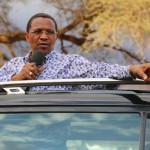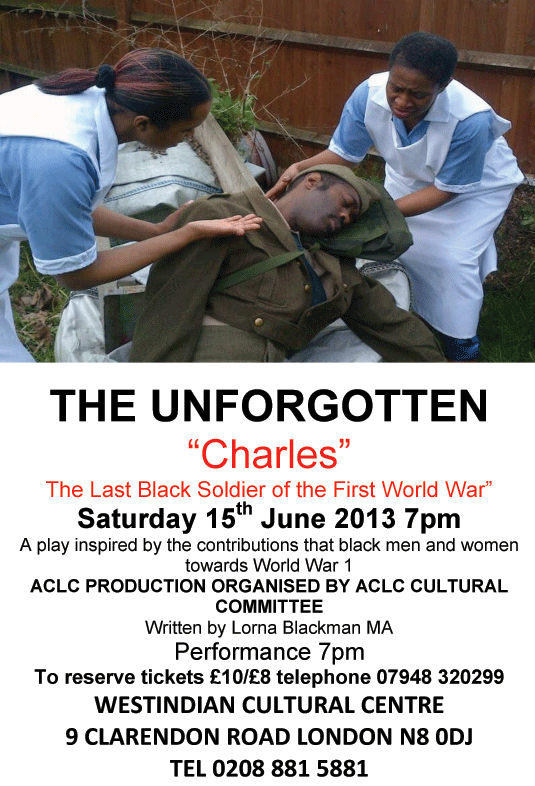PICHA YA KWANZA YA SUPER STAR WA MWISHO KUWA NA MAREHEMU NGWAIR AKIWA HAI AKIFUNGUKA KUTOKA HOSPITALINI.
Hatimaye mtangazaji wa Clouds FM, Millard Ayo aliyepo jijini
Johannesburg, Afrika Kusini amefanikiwa kuongea na M TO THE P ambaye
amelazwa kwenye hospitali ya St. Helen jijini humo. Kulikuwepo na tetesi
kuwa msanii huyo aliyekuwa pamoja na Mangwea naye alifariki.

Akiongea kwa shida, M to the P amewaomba watanzania wamuombee. Amesema bado anasikia maumivu ya kichwa na sehemu za kifua
Talk to Your Armed Opposition, Tanzanian President Kikwete Tells Yoweri Museveni of Uganda, Paul Kagame of Rwanda, and Joseph Kabila of DRC
 The
United Nations Intervention Brigade is helpful in the short term but is
not paramount for durable peace in the Great Lakes region. To have
durable peace, a global dialogue is warranted. General Paul Kagame
needs to have direct talkswith the Rwandan armed rebel movementsop
erating from the Congolese provinces of Kivus the Democratic Republic of
the Congo (DRC), especially the Democratic Liberation Forces of Rwanda
(FDLR). Ugandan President Yoweri Museveni needs to hold similar talks
with the rebels from the Allied Democratic Forces/National Army for the
Liberation of Uganda [ADF-NALU] opposed to his government, and
Democratic Republic of the Congo (DRC) President Joseph Kabila needs to
jump start the peace talks with M23 Congolese rebels.
The
United Nations Intervention Brigade is helpful in the short term but is
not paramount for durable peace in the Great Lakes region. To have
durable peace, a global dialogue is warranted. General Paul Kagame
needs to have direct talkswith the Rwandan armed rebel movementsop
erating from the Congolese provinces of Kivus the Democratic Republic of
the Congo (DRC), especially the Democratic Liberation Forces of Rwanda
(FDLR). Ugandan President Yoweri Museveni needs to hold similar talks
with the rebels from the Allied Democratic Forces/National Army for the
Liberation of Uganda [ADF-NALU] opposed to his government, and
Democratic Republic of the Congo (DRC) President Joseph Kabila needs to
jump start the peace talks with M23 Congolese rebels. It is with these unusual terms that the Tanzanian President Jakaya Kikwete has defined the roadmap for peace in the Great Lakes Region of Africa. He did not do it behind closed doors during a one-to-one meeting with each of the three presidents. He did it in front of more than 11 African presidents and heads of state and while celebrating the most important day for the African Continent: at the occasion of the 50thanniversary of the Organisation of African Unity celebrated this weekend in Addis Abeba over the week-end.
Jaya Kikwete advised the three African Presidents who are among the 11 signatories of the February 24, 2013 Peace, Security and Cooperation Framework (PSCF) for the Democratic Republic of the Congo (DRC) and the Region (see here) during a private meeting among the parties in the margin of the celebration of the 50th anniversary.
The content of the recommendation by the Tanzanian President Jaya Kikwete to the Rwandan, Ugandan, and DRC leaders is not surprising. After all, AfroAmerica Network and its contributors have underlined the same approach in several of our published articles, especially in our article of March 7, 201 3 titled UN Special Envoy in Great Lakes: Will Rwandan President Kagame Seize the Opportunity. The surprise is that these words come from the mouth one of the most influential leaders of the African continent. In fact, along with Angolan President Jose Eduardo Dos Santos and South African President Jacob Zuma, Jaya Kikwete is perhaps the most important president of modern day Black Africa. The three presidents have become the wise people the international community consults before any major action regarding Central, Eastern and Southern Africa. It may not be an accident that the June 26 to July 3, 2013 first trip of the US President Barack Obama since his started his second term will include a stay in both South Africa and Tanzania with a short stop in Senegal (see here).
Hence, if Paul Kagame, Yoweri Museveni and Joseph Kabila are wise, they better listen to Jaya Kikwete. Let us recall our question from our March 7, 2012 article UN Special Envoy in Great Lakes: Will Rwandan President Kagame Seize the Opportunity: “Is the Rwandan President Paul Kagame going to take this opportunity to resolve once for all the thorny problem of the Rwandan rebels by talking to his armed opposition, like other leaders in the region have done or are doing?” With the recommendation from Tanzanian President Jaya Kikwete the question becomes as urgent as ever, not only for Paul Kagame of Rwanda, but also for Yoweri Museveni of Uganda, and Joseph Kabila of Democratic Republic of Congo (DRC).
But is it going to happen? The immediate answers from or reaction of the three presidents to Jaya Kikwete’s recommendation does not augur an easy road ahead. The stoned silence of Paul Kagame, the elusive answer from Yoweri Museveni that “he only discusses only with those willing and isolates the others”, meaning that he choses who to discuss with and the submissive attitude of Joseph Kabila have shown what the international Community will have to deal with. But, regardless of what happens, the jar has been opened,the genie is out, and there may not be a way back.
©2013 AfroAmerica Network. All Rights Reserved.
nalysis of Jakaya Kikwete’s suggestion about FDLR/Rwanda talks
29 mai 2013
Amakuru

Animal-like
hunted Rwandan refugees in the Democratic Republic of Congo in 1997.
The AFDL of Laurent-Desire Kabila marched to Kinshasa while the Rwandan
allied forces of president Paul Kagame exterminate ethnic Hutu on the
Congolese soil, UN Mapping report, October 2010
It means Kagame’s major political tool has gone; by presenting the Hutu as evil under FDLR, Kagame had managed to knock out a very big potential and actual opposition block.If the Hutu make a come back into Rwanda’s political life as equal human beings not devils as he had managed to paint them, Kagame may consider himself gone.
Kikwete’s comment gives us an insight into the current political limbo in which Kagame finds himself. It fits well into the observation that Kagame does not have both political and military capacity to fight the UN brigade.
Once upon a time, Kagame had convinced everyone around that FDLR was evil incarnate! It was believed, and wrongly of course, that all the crimes committed in DRC were committed by FDLR.
Kagame exterminated people and blamed it all to FDLR. FDLR was called “negative force”. Now, Kikwete, a regional power, is telling Kagame to negotiate with FDLR! The problem is that, practically, FDLR does not exist!! Nobody knows who Kagame is going to negotiate with as FDLR because FDLR, for most part, is Kagame’s force!
FDLR in Rwandan politics is an ambiguous term. For outsiders it may be used to refer to the armed group fighting Kagame from DRC. However, for most Rwandans FDLR also means the Hutu as a group.
The Tanzanian diplomats I have spoken to in NY know this. I am sure Kikwete knows this as well. Is telling Kagame to negotiate with “FDLR” telling him to negotiate with the Hutu, his ethnic enemies?
Kikwete knows how much blood of the Tutsi Kagame has accumulated on his hands for his self-aggrandizement. All legitimate Tutsi opposition leaders have been branded “working with” FDLR. Now Kagame is being told to negotiate with FDLR. Then he’s being told to negotiate with the Tutsi political opposition. In general, the term FDLR in Kagame’s political paradigm means ” political opposition.”
In the last couples of years, several leaders of the FDLR based in Europe have been arrested and imprisoned at the instigation of the Rwandan government which branded their group as terrorist. Kagame’s image was then still bright and almost intact among western partners who were interested in pursuing their regional economic interests. As the strongman of the region, they required his complicit support to access DRC’s resources. However, despite a weakened but still disciplined FDLR, the group remains an inescapable force to have lasting peace in Eastern Congo.
By Charles Kambanda



